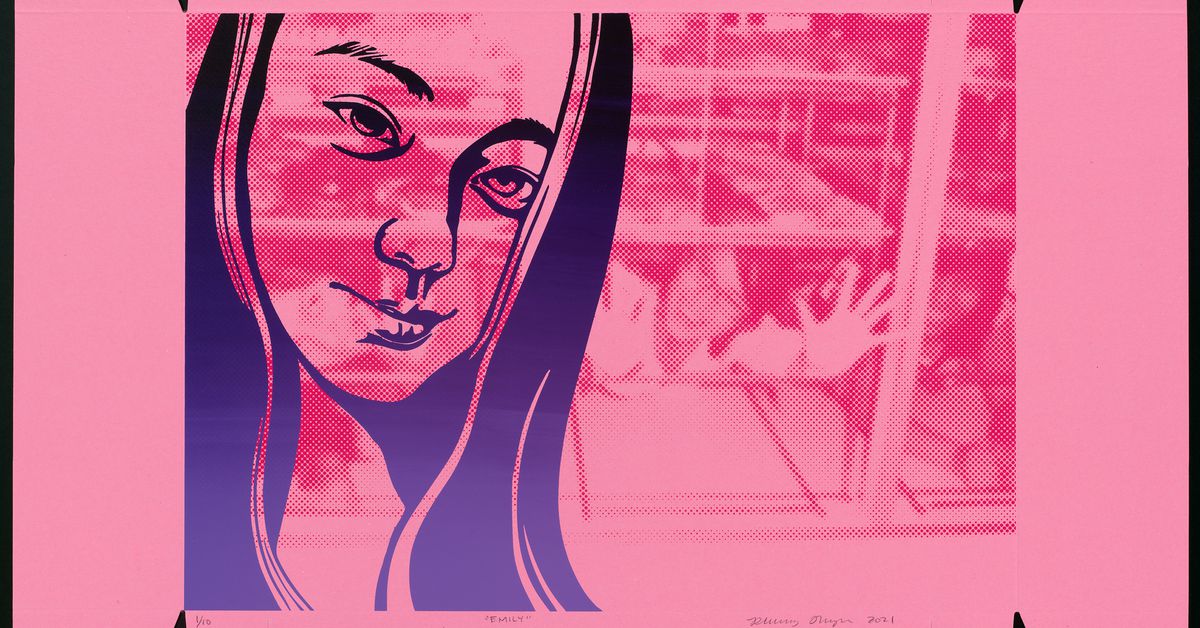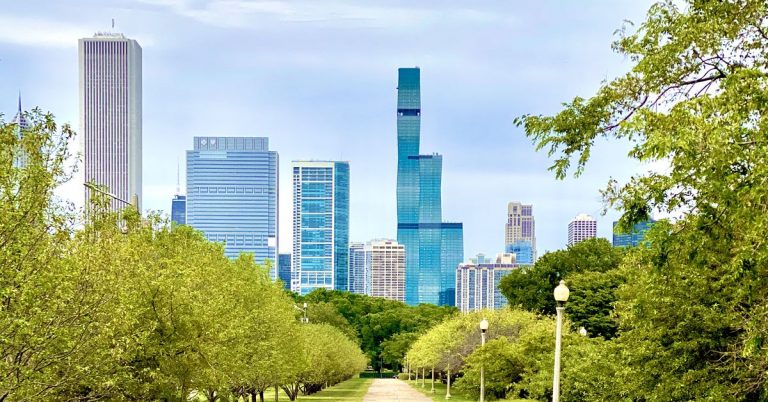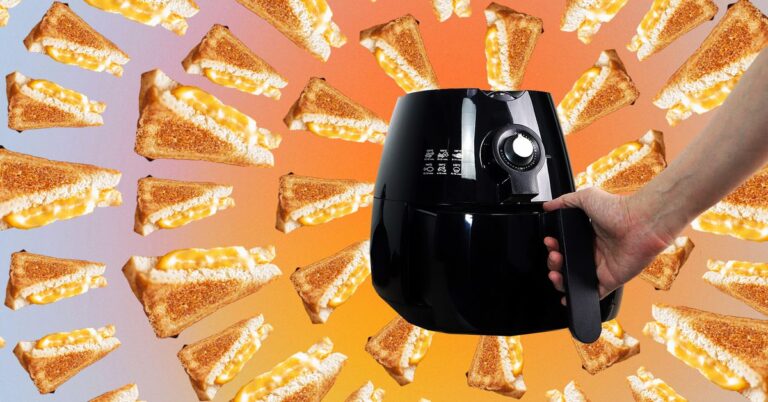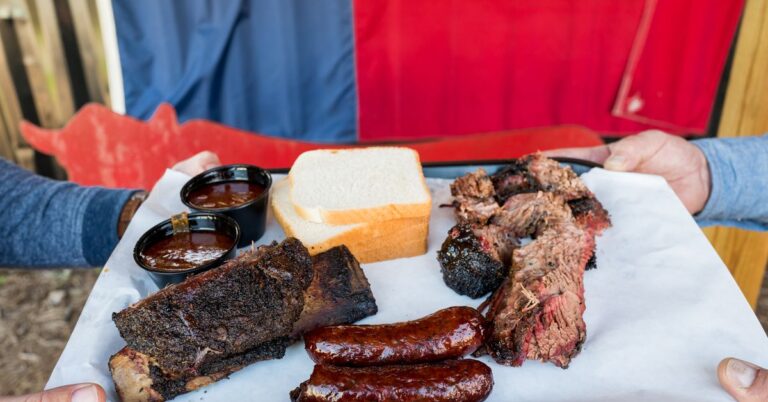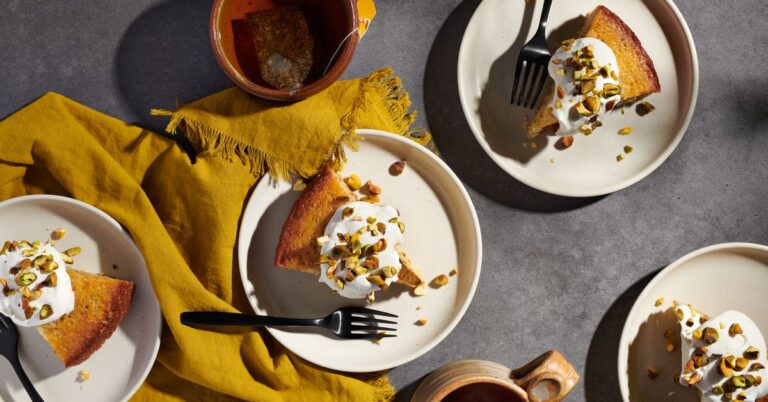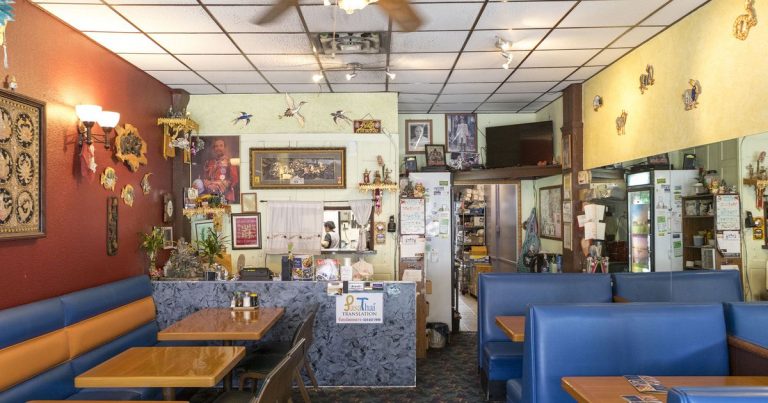A Southeast Asian Artist’s LA Exhibition Features Portraits on Doughnut Boxes
Artist Phung Huynh tells the story of “doughnut kids” — second-generation Cambodian Americans who grew up in their family’s doughnut shops — in her exhibition Donut Whole at Self Help Graphics & Art in East Los Angeles, which is running from now until May 27. The artist examines how identity is informed by both the past and present through a series of eye-popping, multilayered portraits printed on unfolded pink pastry boxes. Though swapping out white boxes for pink ones was initially a cost-saving measure adopted by the early wave of Cambodian refugees who owned doughnut shops in the ’70s and ’80s in Southern California, the now-iconic packaging has come to represent the ingenuity and resilience of the Khmer experience in America.
Donut Whole expands on existing refugee narratives by centering Khmer voices and encourages viewers to reflect on their understanding of assimilation, success, and the American dream. Huynh conceived the idea to use pink doughnut boxes as a platform for storytelling in 2018 while painting a mural for chef Roy Choi’s Las Vegas restaurant Best Friend. “That mural really honors the immigrant story and how immigrants and people of color are the backbone to LA,” she says. The hand-painted scene overlooking the restaurant’s main dining room features notable Angelenos in the arts including Shelby Williams-González and Evonne Gallardo, an abundance of cacti (a symbol of immigrant resilience, says Huynh), and a depiction of Our Lady of Guadalupe held up by a Chinese cherub.
Huynh came to better understand the intersection of art, food, and personal histories while creating the mural, and set to work on the first iteration of her pink box portraits following the project’s completion.
:no_upscale()/cdn.vox-cdn.com/uploads/chorus_asset/file/23354043/Monica_Khun_Donut_Box.jpg)
Though Huynh explored aspects of her cultural identity in earlier exhibitions, including the impact of contemporary beauty standards on Asian female bodies, it took over four decades for her to find the language, both artistically and culturally, to approach this part of her past. (Huynh’s Chinese Cambodian father escaped to Vietnam during the Cambodian genocide and relocated their family to the United States from Vietnam in 1978.) Huynh grew up in and around the doughnut shops owned by her family and friends that have since shuttered. “Assimilating is a process that takes a lot of time, like generations. When we first arrived, our parents didn’t have the language to tell our story, so white historians are telling the story. Now we’re coming of age; now is our moment to tell our stories for us,” says Huynh.
For Donut Whole, Huynh collaborated with Pink Box Stories — a digital space dedicated to documenting “stories of the Cambodian families behind California’s donut shops” — to connect with her subjects. Master printmaker Dewey Tafoya assisted Huynh with silk screening the seven portraits in bright hues inspired by popular doughnut flavors like ube, maple, and blueberry. Taking a multilayered approach to each subject, Huynh and Tafoya printed their childhood photos in the background with present-day headshots that span the foreground. Also included in the show are prints of doughnut boxes emblazoned with pertinent phrases seen in doughnut shop culture, like “Cash Only,” “Open 24 Hours,” and “Play Lotto Here.” Huynh’s earlier body of work, portraits drawn on pink doughnut boxes using graphite pencil, are also on display.
:no_upscale()/cdn.vox-cdn.com/uploads/chorus_asset/file/23354016/Ratana_Kim_Donut_Box.jpg)
Huynh hopes to uplift doughnut kids by centering their stories and experiences in her latest work. While history can benefit from a variety of perspectives, Huynh says that it can be problematic when those who exist only on the periphery are the sole authors of the past. “I really am against the whole American dream narrative — ‘Look at these Asians, they come here and they pull themselves up by their bootstraps, and they’re successful’ — because it demonizes purposely Black and brown folks. It also masks the extreme trauma that our parents faced and experienced, and how that trauma is passed down,” she says.
In addition to sharing personal narratives that acknowledge the struggle of the Cambodian American experience with Donut Whole, Huynh also celebrates the intrinsic joy of doughnut shops and the hard-fought triumph of mom-and-pop shops over American restaurant chain culture, like Colorado Donuts in Eagle Rock, B.C. Donuts in Pasadena, and Monterey Donuts and Donut Star in Highland Park.
“This is our contribution to America on so many levels: its economy, its culture, its physical landscape, and that we have a significant place here too,” says Huynh. “It’s our American story.”
Admission is free. Reservations are required.
